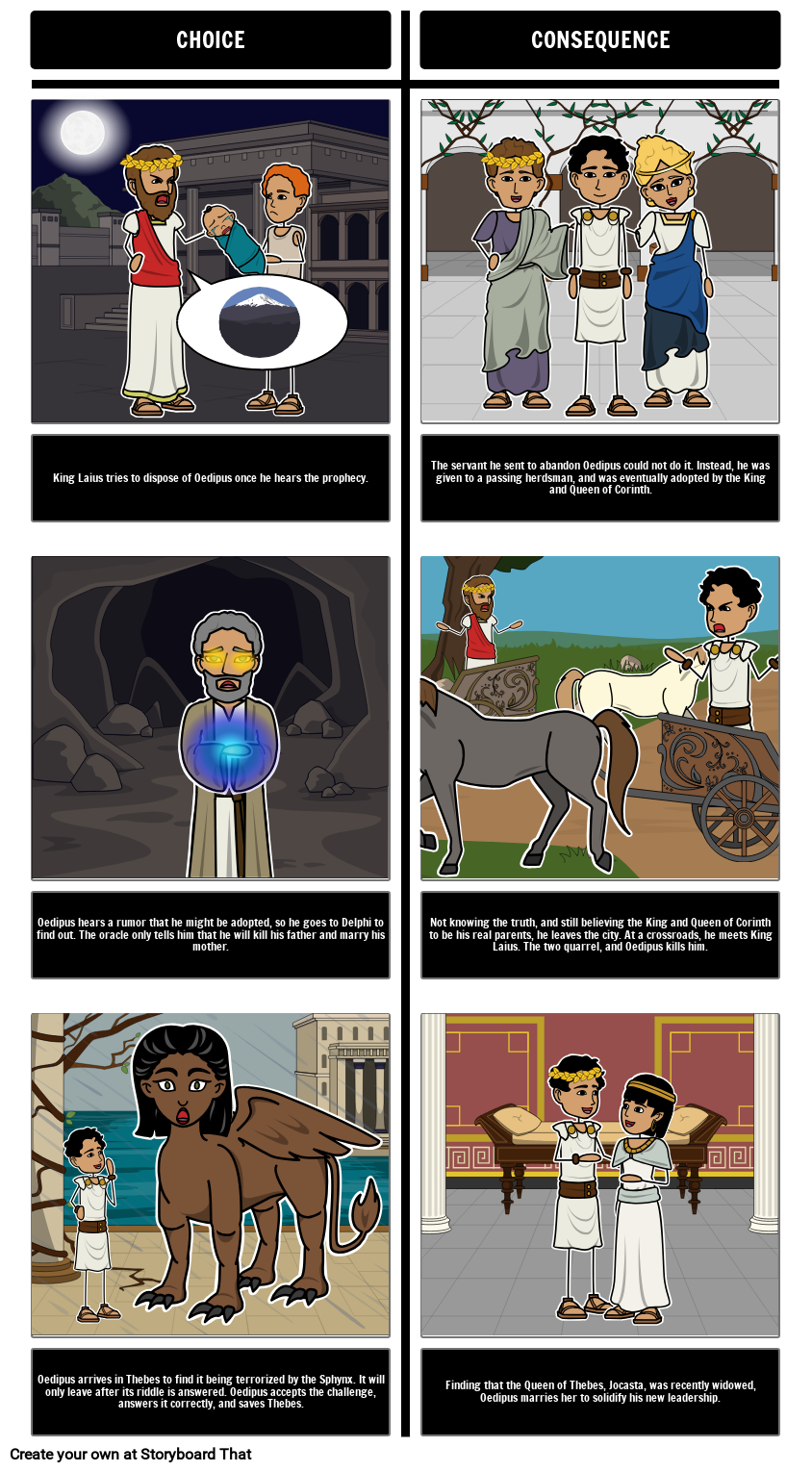

Health then, only comes with the end of the play and Oedipus' blindness. The oracle tells Oedipus at the start of the play that the source of this plague is Laius' murderer (Oedipus himself). Thebes at the start of the play is suffering from terrible blight which renders the fields and the women barren.

Throughout Oedipus, then, it remains a pertinent question. “What is this news of double meaning?” Jocasta asks (939).

Thus the conflict between “the one and the many” is central to Sophocles’ play. In so many of these cases, Oedipus’ realization is that he is either between – or, more confusingly, some combination of – two things. Sophocles’ play, in fact, abounds with twos and doubles: there are two herdsmen, two daughters and two sons, two opposed pairs of king and queen (Laius and Jocasta, and Polybus and Merope), and two cities (Thebes and Corinth). The Oedipus we are left with at the end of the play is similarly both father and brother. Yet in the end, these two roles merge into one person – Oedipus himself. Oedipus is searching for Laius’ murderer: he is the detective seeking the criminal. How can Laius have been supposedly killed by one person – and also by many people? The story, however, reveals that Oedipus himself alone killed Laius. Throughout the play, a central inconsistency dominates - namely the herdsman and Jocasta both believe Laius to have been killed by several people at the crossroads. Similarly, the play itself works backwards towards a revelatory start: the story has, in effect, already happened - and Oedipus is forced to discover his own history. As the child of his own wife, and thus father and brother to his children, Sophocles explores various interrelationships between where things began and who fathered who. Oedipus embarks upon a search for his own origins, and - though he does not realize it - for his real parents. Indeed, literal sight is juxtaposed with 'insight' or 'foresight'. As with the previous theme, sight/blindness operate both literally and metaphorically within the play. realized) leaves him unable to face his family or his parents in the afterlife). At the end of the play, moreover, Oedipus blinds himself, because what he has metaphorically seen (i.e. Teiresias holds the key to the link between sight and blindness - for even though he is blind, he can still see and predict the future (if not the present). After Oedipus finds out what has happened, he bemoans the way everything has indeed "come to light". Teiresias, of course, is literally 'in the dark' with his own blindness - and yet manages to have sight over everything that is to follow. Oedipus - and all the other characters, save for Teiresias - is 'in the dark' about his own origins and the murder of Laius. However, he survives and was cared by King Polybus of Corinth and his wife Merope, who raise him as their own.Darkness and light are tightly wound up with the theme of sight and blindness in Sophocles' play. Oedipus was originally the son of King Laius of Thebes and Queen Jocasta, but King Laius fearing that the prophecy (that he would be killed by his own son) would come true orders him to be killed. This epiphany can be clearly seen in Oedipus, when the title character Oedipus undergoes epiphany after finding out about his parentage. Thus, a person can be said to undergo epiphany, when he/she discovers some truth and becomes self-realized. An epiphany can be explained as a moment that can take place in anyone’s life, during which they will discover truths that will enlighten or reveal an individual’s character. The one tragedy, in which epiphany was prominently featured was Oedipus, written by Sophocles. Customer’s last name 1 Oedipus the King Among the many dramatic devices, epiphany is a key device, which can found or featured in many works, particularly tragedies.


 0 kommentar(er)
0 kommentar(er)
